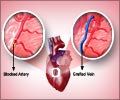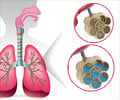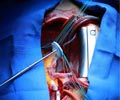- Congenital Mitral Stenosis With or Without Associated Defects - (http://circ.ahajournals.org/cgi/content/full/102/suppl_3/III-166)
- Mitral Stenosis - (http://www.emedicine.com/med/topic1486.htm)
- Hospitalization statistics for Mitral valve disease: - (http://www.wrongdiagnosis.com/m/mitral_valve_disease/stats.htm#medical_stats))
- Congenital Mitral Stenosis - (http://www.emedicine.com/ped/topic2517.htm)
- Mitral valve regurgitation - (http://www.nlm.nih.gov/medlineplus/ency/article/000176.htm)
- Heart & Vascular Institute (Miller Family) - (http://www.clevelandclinic.org/heartcenter/pub/guide/disease/valve/mvrepairfaq.htm)
Diagnosis of Mitral Valve Regurgitation
Most often patients with mitral regurgitation are asymptomatic, but symptoms gradually develop. Some of the symptoms are -
- Shortness of breath
- Fatigue,
- Palpitations
- Breathing difficulty when lying down (called Orthopnea).
During clinical examination, a physician will be able to identify signs of pulmonary edema and heart failure. On auscultation, a holosystolic murmur suggests mitral regurgitation.
Link - Listen to/Download |
Chest X-ray reveals the enlargement of the heart chambers.
Electrocardiogram detects the presence of atrial fibrillation. It shows evidence of left atrial enlargement and left ventricular hypertrophy. Old myocardial infarction is also shown in the ECG.
Mitral regurgitation can be confirmed by an echocardiogram. Usually a Doppler echo shows the leaking of blood back into the left atrium. Echo can be also used to measure the chamber sizes and the severity of regurgitation.
Cardiac catheterization is another procedure to confirm mitral regurgitation. Co-existing aortic valve disease or coronary artery disease can also be diagnosed.















Methods for Mitral Valve Repair: Annuloplasty:In annuloplasty an artificial ring is placed around the annulus of the valve.This ring reinforces the annulus and restores the valve to its normal shape and size. Balloon Valvuloplasty:Balloon valvuloplasty is performed using a catheter, i.e. a very thin flexible tube which can be inserted into the body, with a balloon at the end. The balloon is put inside the valve and is expanded thus stretching the valve and bringing it back to its normal size. For more info: heart-consult.com/articles
Various symptoms are
* Shortness of breath.
* Pulmonary edema or fluid accumulation in the lungs.
* Orthopnea or shortness of breath while lying flat.
* Paroxysmal nocturnal dyspnea or Cardiac Asthma
* Decreased exercise tolerance.
* Swollen feet or ankles.